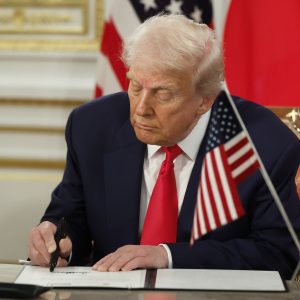African fashion gains global spotlight, faces major hurdles
Rising designers earn international acclaim but struggle with funding, infrastructure
JOHANNESBURG, South Africa (MNTV) — African fashion is making waves on the global stage, with designers earning recognition from icons like Beyoncé, Alicia Keys, and Naomi Campbell.
Yet, despite this growing acclaim, the industry grapples with significant challenges, including inadequate funding, infrastructure, and high transport costs.
South African designer Thebe Magugu, winner of the 2019 LVMH Prize, is at the forefront of this movement.
With his Johannesburg-based fashion house, Magugu fuses modern aesthetics with deep African cultural influences, a style he believes is shaping the industry’s future.
“The world is hungry for stories beyond the European and American gaze,” Magugu told CNN.
“African storytelling is nuanced, and when people see it, they resonate with it.”
Experts agree that African fashion is on the rise. Serge Carreira, head of the emerging brands initiative at the Fédération de la Haute Couture et de la Mode, predicts that within a decade, several African labels will compete alongside major European brands.
A 2023 UNESCO report forecasts a 42% rise in demand for African haute couture by 2033, fueled by e-commerce and a growing appreciation for diverse fashion narratives. However, high import duties, limited access to capital, and inadequate local textile production remain major roadblocks.
Kenyan designer Katungulu Mwendwa, founder of Katush, champions sustainability by sourcing cotton within Africa and working with local artisans. Yet, steep transportation costs limit African designers’ ability to compete with global manufacturers.
South African designer Judy Sanderson calls for stronger regulatory frameworks to protect artisans and boost local textile production. UNESCO suggests that developing textile clusters and improving infrastructure could lower costs and attract investment.
To gain global exposure, African designers are increasingly showcasing their work at top fashion events such as Tranoi Paris and Rakuten Fashion Week in Tokyo.
These platforms have helped talents like Magugu, Sanderson, and Mwendwa secure international partnerships and visibility.
“Fashion does not exist in isolation,” Mwendwa said.
“A global presence is vital for African designers to share their work with the world and instill pride in their heritage.”
Despite the challenges, Africa’s fashion industry is proving its resilience, positioning itself for a breakthrough on the global stage.







